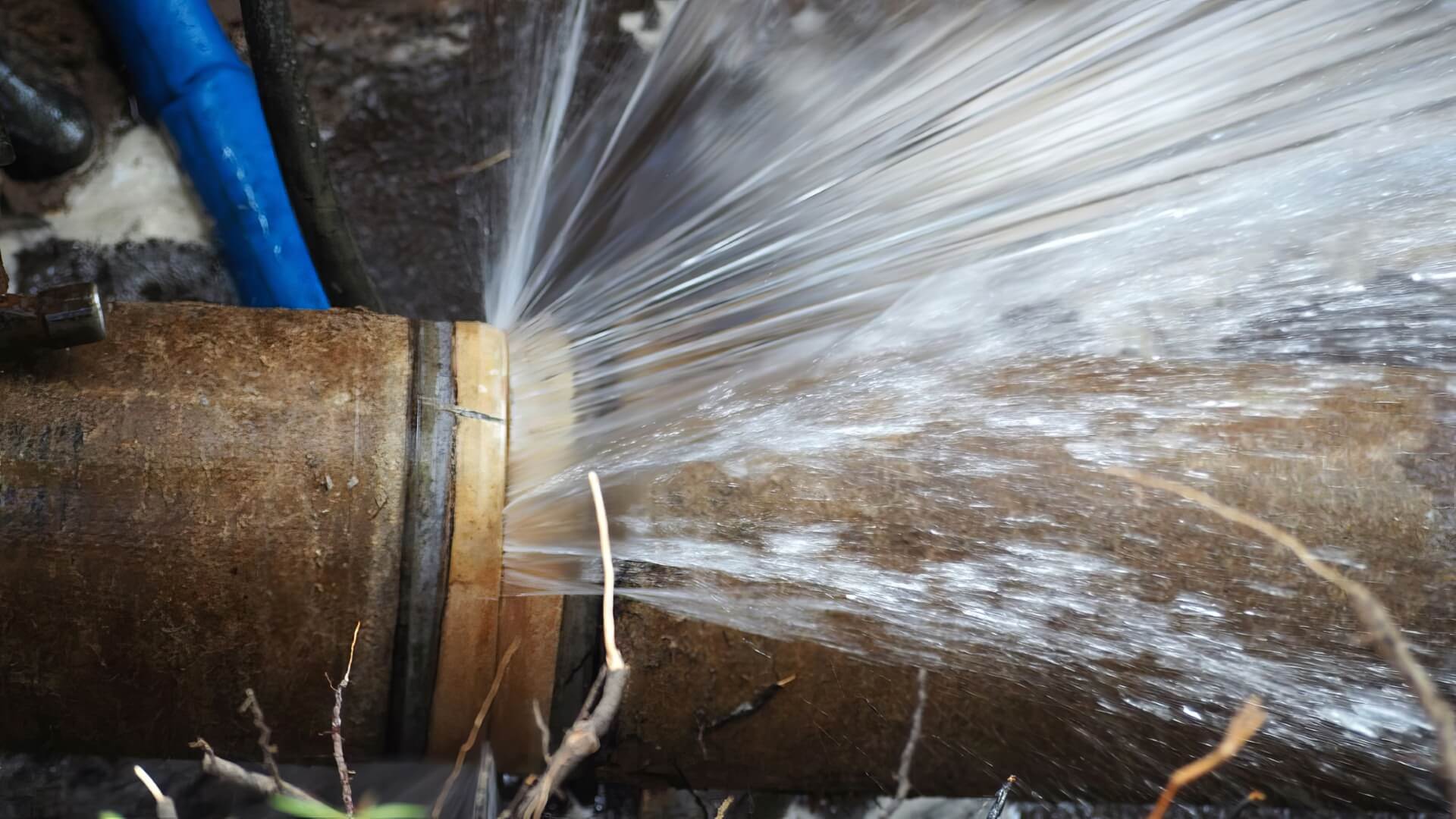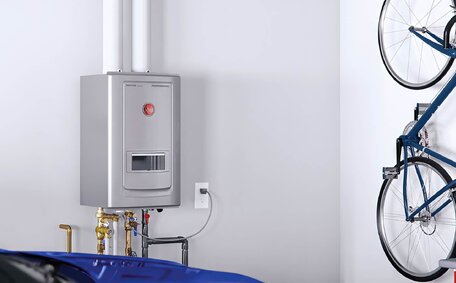Introduction: The Link Between Blocked Drains and Pests
Ignoring blocked drains can invite pests, as clogs create the perfect habitat for them. Standing water and organic waste accumulation turn clogged drains into breeding hotspots for pests in your residence.
Common pests like drain flies, fruit flies, cockroaches, and rodents should be promptly removed, especially drain flies due to their persistence. They are drawn by the moisture, food scraps and nurturing environment for laying eggs. Left unchecked, these pests can quickly proliferate, becoming a nuisance and posing health risks.
We’ll discuss how to stop bugs from invading your plumbing system, the associated health risks, and prevention strategies to maintain clear drains. We will also detail strategies on how to rid drain clogs and address any consequent pest infestations surrounding your property or commercial establishment.
Recognising the hygiene impact of pests like drain flies empowers you to take preventive steps. Learn about the attraction of blocked drains to pests and how to combat this through routine maintenance and expert plumbing services.
Common Household Pests Attracted to Blocked Drains
Blocked drains are hotspots for various pests looking to invade your home. Here are the most prevalent ones attracted to clogged drains:
Cockroaches are adept at infiltrating tight spaces, finding blocked drains to be an ideal habitat.
Rodents are drawn to the scent of hair and food waste in blocked drains, often burrowing into pipes and causing significant plumbing issues.
Drain Flies
Drain flies, along with rodents, take advantage of the organic film in slow-draining or clogged pipes. As larvae hatch in the sludge, they extract nutrients, posing concerns for property owners. Adult flies venture into living spaces, often leading to infestations in areas like bathrooms and kitchens.
Fruit Flies
The humid conditions in blocked drains are perfect for the rapid multiplication of fruit flies, which enter through drain openings to feed on fermenting organic matter.
To prevent pests, avoid clogs by using drain cleaners regularly, and seek a professional for signs of insects or plumbing issues. Ensuring smooth drain flow protects your home and business.
Cockroaches
Cockroaches favor the damp, warm, and nutrient-dense environment of clogged drains, squeezing through tiny openings to feast on grease and organic matter trapped inside.
To fix this, eliminate cockroaches quickly to prevent them from spreading through the house. Signs of an established infestation such as live roaches behind appliances indicate potential water contamination from their waste.
Drain-dwelling insects like cockroaches bear health risks, carrying pathogens such as Salmonella that contaminate surfaces. This can lead to illness if people come into contact with bacteria spread by these pests.
Use drain screens, maintain clean kitchens, and keep food sealed to prevent cockroach infestations. For persistent issues, contact a pest control expert.
Eliminating underlying issues such as draining flies simplifies cockroach removal. An exterminator can apply baits and insecticides to eradicate indoor roaches.
Rodents
The damp and dark conditions of obstructed drains, coupled with food remnants, make it a prime habitat for rodents.
Detecting a rodent infestation involves looking for droppings, gnaw marks on pipes, unusual smells and actual rodent sightings. Eliminating rodents is crucial due to their ability to spread diseases, trigger allergies, and damage insulation or wiring.
It’s imperative to act swiftly if signs suggest rodents are accessing your premises through the drains. Engage a professional plumber to clear drain blockages and seal potential rodent access points.
You might need pest control to trap rodents already inside and stop others from entering.
Combine drain cleaning with rodent control to address conditions that attract pests, humanely remove existing rodents, and restore your plumbing system. Quick action effectively resolves rodent issues from clogged drains.
Flies
Impeded drains that retain stagnant water and organic refuse are environments that drain flies, particularly, thrive in.
Adult drain flies emerge from pipes and infiltrate kitchens and bathrooms. Drain flies can swarm around drains, frequently invading showers and sinks in kitchens and bathrooms. A group of small flies in these areas can signal a drain fly problem, suggesting an infestation.
These flies can spread diseases by contaminating surfaces and food prep areas.
Prompt expert drain cleaning is essential to eliminate drain flies from infestations rooted in blocked drains.
Preventing Blocked Drains to Deter Pests
Preventing drain blockages is the most effective way to deter pests from invading your home or business. Here are some tips to keep drains free-flowing and pest-free:
Regular Maintenance
Use a plastic zip tie or a similar tool to remove hair and debris from drains.
Conduct monthly visual inspections of sinks and drain pipes to spot early signs of blockages.
Proper Disposal
Dispose of food scraps in the bin rather than down the drain or disposal. Avoid flushing wipes, feminine products, and other items that may clog pipes.
Employ sink strainers to catch particles and prevent bugs from moving upstream in drains. Avoid pouring grease, oil, or fat down the drain, as these cause blockages.
Install Protective Measures
Consider planting natural insect repellents such as lavender, mint, and catnip around external drains.
Fix Leaks and Clogs
Prompt action on drain backups or plumbing leaks is crucial to prevent serious drainage issues. If DIY solutions fail to clear the blockage, consult a professional plumber for a comprehensive fix that also addresses pest attraction.
Proactively managing your water system and drain care helps deter pest issues from emerging. If you require help managing clogs and infestations, reach out to our Quakers Hill plumbing team.
Regular Drain Maintenance
Regular maintenance, such as periodically pouring boiling water down the drain, is vital for preventing blockages and pest attraction. It’s wise to regularly inspect and secure potential pest entry points and ensure clean drains each month. Start by pouring boiling water down each drain to dissolve grease, hair, and food waste.
Follow with a mixture of half a cup of baking soda and vinegar down the drain to break down residue with the fizzing reaction. Regular maintenance keeps drains clear, deterring pest infestations by removing their breeding grounds and access points.
Avoid Pouring Fats, Oils and Grease Down the Drain
While convenient, pouring fats, oils, and grease down the sink is a harmful practice that can culminate in severe plumbing issues.
Solidified grease forms thick deposits on pipe interiors, hindering water flow and trapping other waste.
Obstructions cause more than inconvenience; they can lead to sewage backflow, foul odours, pest issues, and pipe ruptures.
Bypass such issues through proper grease and oil disposal. Pour fats into an empty can rather than going down sink and place it in the rubbish bin once solidified. Use paper towels to wipe small amounts of grease from pans before washing. Use paper towels to wipe small amounts of grease from pans before washing.
It’s important to Protect against any plumbing issue by keeping drains grease-free. Let hot water and cleaning products do the work never dump oil, grease, or fat of any kind down your sinks or toilets. With some simple adjustments, you can prevent messy clogs and keep your drains flowing freely.
Use Drain Covers and Screens
Using drain covers and screens is an effective way to help prevent blockages and deter pests. Fine mesh screens prevent bugs and other unwanted guests from coming up through drain openings into your living areas when appropriately affixed over sink, shower, tub and floor drains. Hair catchers and strainers over sink drains stop strands of hair and food particles from accumulating in pipes. For outdoor areas, gravel screens over yard drains keep out large debris. For outdoor areas, gravel screens over yard drains keep out large debris. Using drain covers and screens is an effective way to help prevent blockages and deter pests.
Make sure to clean these regularly.
Treatments for Existing Drain Blockages and Pests
There are several methods for clearing existing drain blockages and eliminating any pests that have infested the drains:
Chemical Drain Cleaners
Liquid drain cleaner products containing lye, sulfuric acid or other caustic agents can help dissolve organic clogs. However, they come with safety risks if not used properly and may damage your pipes. Follow the instructions for drain cleaning products carefully, as misuse could sign you up for further issues.
Enzyme Drain Cleaners
Enzymatic cleaners offer a safer alternative, efficiently breaking down grease and adeptly working to remove organic matter like hair and food residues. They are less corrosive but take longer to work than caustic chemical cleaners. Use routinely to prevent buildup.
Plunging
For minor clogs near your sewer lines, a plunger can manually dislodge the blockage. Cover overflow openings with a wet cloth first. Repeated plunging may be needed to clear severe clogs as stubborn leaks can resist simple solutions.
Snaking the Drain
Inserting a motorised auger or plumber’s snake into the drainpipe can hook and break up stubborn obstructions. This method works for tougher clogs deeper in the pipes.
Professional Drain Cleaning
Should you encounter significant drain obstructions or a pest infestation, reach out to Quakers Hill Plumbing. Our licenced technicians employ technologies such as pump water devices to meticulously cleanse pipes, eliminate blockages, and tackle any consequent pest or sanitary concerns.
Combining regular maintenance with timely professional drain cleaning as needed is the best way to keep your drainage system free of clogs and pests at bay.
Professional Drain Cleaning and Pest Control
When drain blockages and pest infestations in your plumbing persist despite DIY efforts, professional services are critical for proper remediation. Our licenced plumbers at Quakers Hill Plumbing have advanced equipment and expertise to thoroughly clear drain obstructions, remove organic waste buildup providing pest breeding grounds, and address any resulting rodent or insect issues.
We use high-powered water jets, augers and suction technology to clear out grease, hair, tree roots and other debris clogging pipes.
Any compromised portions of the sewer line receive meticulous repair. To eliminate pests, we may apply targeted insecticide treatments to your drainage system if needed after cleaning. Rodent infestations are handled humanely through exclusion and removal tactics.
For business owners and property managers, we offer scheduled maintenance to inspect and service drains to prevent future problems. Our team takes steps to seal any pipe holes and cracks pest could exploit as entry points.
Don’t wait until a small clog turns into a major blockage attracting pests. Trust Quakers Hill Plumbing for professional drain cleaning and pest control services. We restore proper plumbing function while getting rid of unhealthy rodent and insect issues.
Conclusion
In summary, blocked drains can easily become breeding grounds for pests due to the stagnant water and buildup of organic waste. Flies, cockroaches, and rodents are particularly drawn to these environments. Their presence poses health hazards and risks of property damage.
The key is prevention through proper waste disposal and regular drain maintenance. Use drain screens, avoid grease and debris down drains, and treat minor clogs quickly before they worsen. For severe blockages or infestations, professional plumbing and pest control services can fully rectify the issues.
Addressing drain obstructions promptly is critical to deter pests. Contact us by phone at 1300 349 338 or email [email protected].
Quakers Hill Plumbing offers trusted solutions for blocked drains and resulting pest problems in homes and businesses across Sydney. Our team is ready to inspect your drains and handle any necessary cleaning, repairs and pest removal to restore proper plumbing function.






